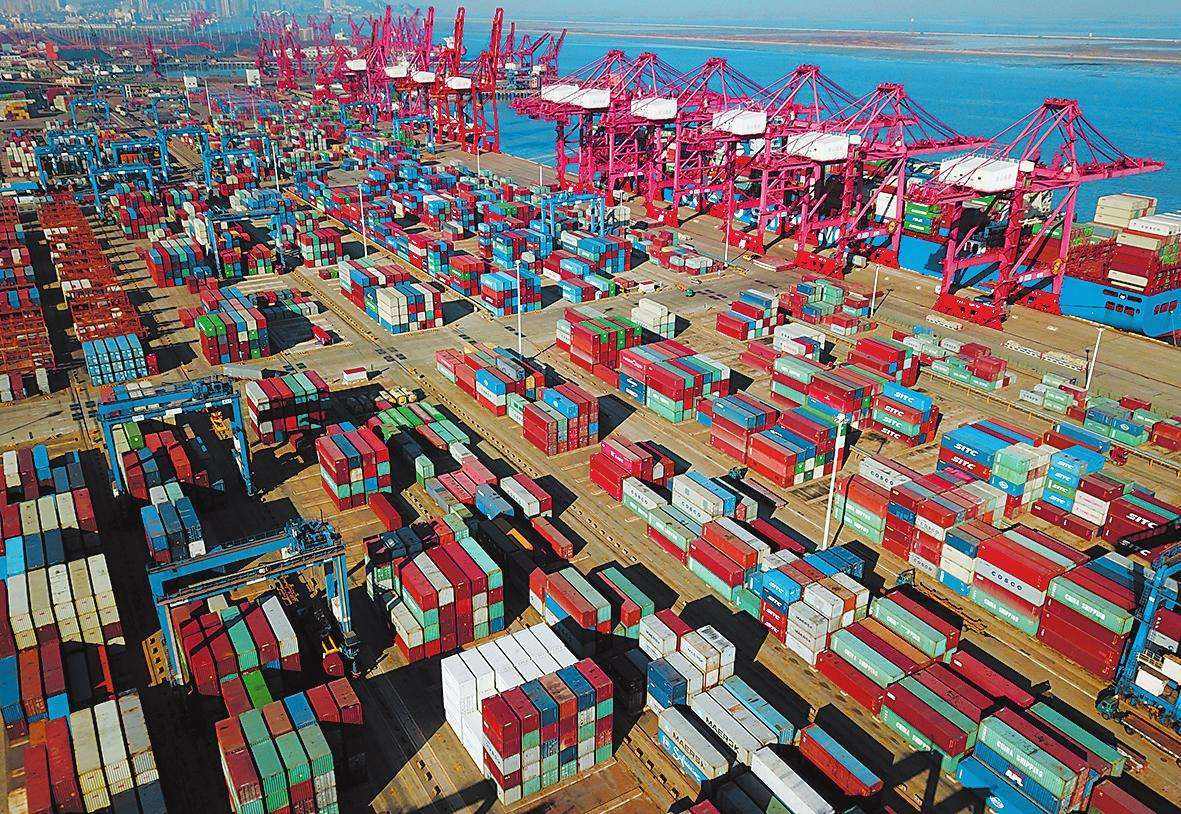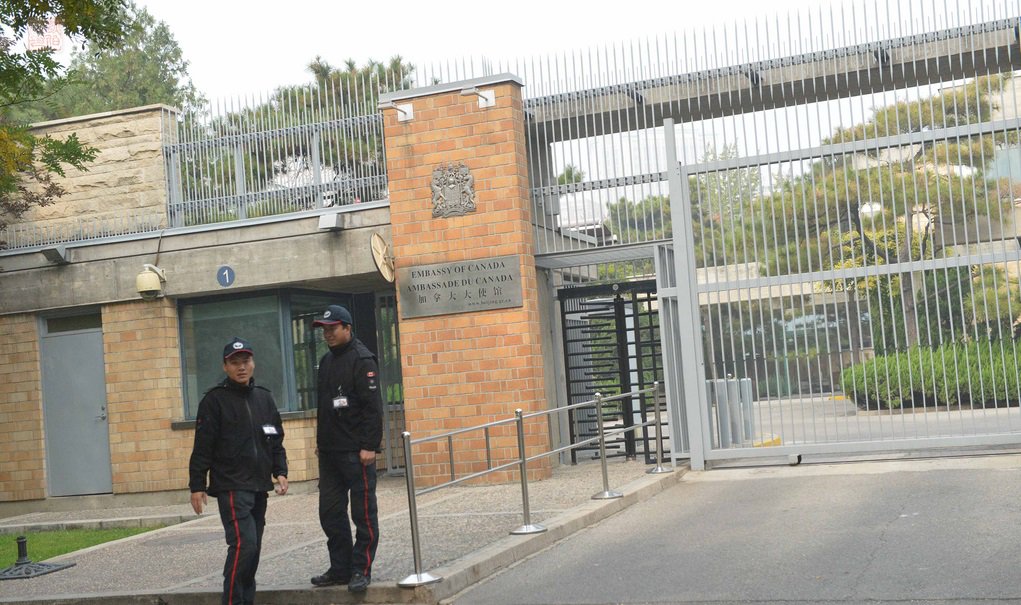I'm going to disagree with most people here, as I believe the US and China have indeed reached some sort of agreement on trade beyond a mere truce. This would explain the continued "optimism" on both sides, in spite of the outrageous incident over Huawei's CFO, and it would explain the seemingly unfazed attitude of the Chinese government in proceeding with consultations on the trade frictions in spite of the arrest.
David Goldman at Asia Times has been speculating that the deal involved merely a change of language and some other largely cosmetic stuff. He points to the rapidly deteriorating economic situation as the reason behind Trump's change of heart. Yet I don't believe this. Regardless of what Trump would like to do to avoid blame, I don't think it is possible for him to walk back his trade war so easily at this point. He is too boxed in by Pence, by his advisors, by the wide political base for his trade war among politicians in both parties, by Mueller, and by last but not least, the CIA. For this reason, a real concession would be necessary, although it would have to be one that can be managed by China and won't cause harm to the overall objectives of the CPC on the economic front.
In fact, I'm seeing the outlines of a rather ugly deal which involves Huawei and it's share of the global telecom networking market, especially the the 5G area. In the article that follows, Huawei is seen to "reassure" its suppliers (and the stock market) that the current noise in the "Five Eyes" countries will not affect them. Then it oddly hints that it will content itself with the Chinese market, even though this is billed as a "temporary" phenomenon. Why would the effect be so drastic, if it's already blocked in the US, Australia and perhaps others in the anglo-saxon block anyway?
Such a deal, will not be admitted unless Trump blurts it out, but it makes some sense for both sides. For China, it allows it to concentrate on economic and technology upgrading without the disruptions emanating from the trade war. Losing part of Huawei's telecom networking market share is a sacrifice, but it has other businesses, it still has its technology and efficiency, and can probably win market share back when the time comes. Meanwhile, loss in future business can be compensated by accelerating 5G rollout in China (this is hinted below as well), and maybe also screwing Ericsson and Nokia-Siemens domestically.
For the US, the deal improves it's position in the 5G contest. And since the "Five Eyes" countries appear to be coordinating on this issue, I have to believe that "security" and spying have something to do with it. Indeed, while claiming and perhaps believing that they are combating Chinese espionage, they aim to protect and enhance their own surveillance empire. More on this later.
There is a precedent for this sort of market share limiting agreement. In the 80's, before the Plaza Accord, the US govt imposed a limit of about 23% of the US market for Japanese auto imports. All hell would break loose whenever this share went up slightly, and the Japanese repeatedly agreed to bring it back down. Of course, the nature of what I believe to be the proposed deal is rather different from the earlier case, as it involves strategic and geopolitical matters, but the nature of the "trade" friction is also different in the same way.
I cannot find a Fox News video I saw yesterday, but a very arrogant commentator who was being interviewed seemed to be arguing in a similar vein, saying roughly that it's OK for Huawei to sell equipment in China, but that they shouldn't be allowed to "spy" on other countries.
The article follows
Huawei's suppliers unharmed by CFO's arrest, analyst says
The "unreasonable" treatment of Huawei Technologies Co by the United States won't harm the company's partnerships with suppliers, as a robust domestic market and its technological competitiveness will help it overcome challenges, an industry analyst said on Friday.
Wang Yanhui, secretary-general of the Mobile China Alliance, said US interference with the global telecom market is giving Huawei a hard time overseas, but the temporary difficulty, if properly handled, won't harm the company's long-term business.
"China has a huge domestic 5G market and its efforts to accelerate construction of a nationwide network will bring opportunities to Huawei," Wang said.
On Thursday night, China said that it had officially allocated certain radio frequency spectra to the country's big three telecom carriers for the construction of a nationwide 5G network, a key step to quicken the rollout of the superfast technology.
The move sent shares of Huawei's Chinese suppliers climbing on Friday. Tongyu Communication, for instance, surged more than 5 percent in Shenzhen. An index tracking 5G-related Chinese companies also rose by 1.75 percent at the close of trading on Friday, according to financial information provider Wind Info.
The news came after Canadian police arrested Huawei's chief financial officer, Meng Wanzhou, at the request of the US, on Dec 1. The two countries did not specify the reason for the detention.
On Friday, Foreign Ministry spokesman Geng Shuang said Meng is a Chinese citizen, in response to foreign media questions about her identity.
Geng also called for more effort by Japan to create a level playing field for Chinese companies, and encouraged the country not to damage mutual trust and friendship when asked about media reports that Japan will ban government purchases of products made by Huawei and another Chinese company, ZTE.
On Thursday night, Huawei said in a letter to its global suppliers that the US had made some accusations against the company recently, and Huawei has clarified many times that it strictly complies with all applicable laws and regulations in its global business operations.
"It is unreasonable of the US government to use these sorts of approaches to exert pressure on a business entity. They are against the spirit of a free economy and fair competition. Nevertheless, regardless of how unreasonable their approach becomes, the partnerships we have with our global suppliers will stay unchanged," Huawei said.
The Shenzhen-based company is the world's second-largest smartphone vendor and a leading maker of telecom equipment. It has more than 2,000 component and service suppliers, according to a report by Guosen Securities.
In November, Huawei unveiled a list of its 92 core suppliers for the first time, 33 of which are from the US, 11 from Japan and four from Germany. Two Swiss companies and two South Korean companies are also among the suppliers.
China has a huge domestic 5G market and its efforts to accelerate construction of a nationwide network will bring opportunities to Huawei."


